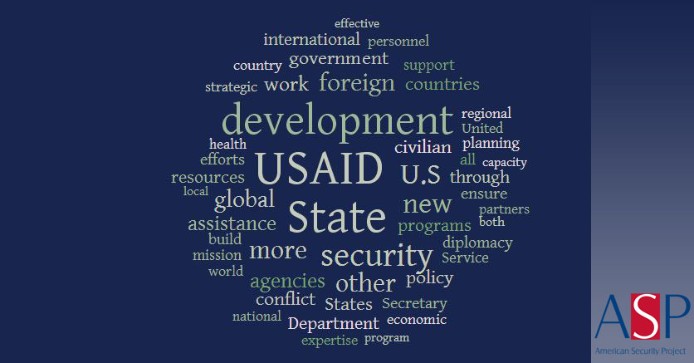
Series on Foreign Aid, Diplomacy and Development | ASP
According to a Kaiser Family Foundation 2013 survey, the average estimate of the federal budget devoted to foreign aid is 28%. 61% of respondents believe the United States spends too much on foreign assistance and significant cuts are necessary. In reality foreign aid makes up less than 1% of the federal budget, but the discrepancy highlights a real and long-standing challenge for proponents of diplomacy and development programs.
Few people truly understand what foreign aid does, its costs and goals, and how successful it is. The lack of public support translates to weak Congressional backing for State and USAID, especially when allocating financial resources. Without adequate budgetary means, missions and programs are not as effective as possible, further weakening support for them.
Innovative diplomacy and development are vital components of 21st century statecraft, yet their role in furthering national interests, addressing global threats, and adjusting to global trends are largely misunderstood. Greater awareness of the impact of diplomacy and development programs will increase support and engagement, the difficulty comes in determining how to get the story of aid across effectively. This was a major focus in the 2010 QDDR and remains a top priority for State and USAID.
In preparation for the upcoming release of the 2014 Quadrennial Diplomacy and Development Review, the American Security Project will publish an online series on foreign aid, development, and diplomacy. The series will discuss the goals, successes, and shortcomings of US foreign aid, examine barriers to stronger public support, and consider the impact of the 2010 QDDR on foreign affairs.
The posts serve as a preview of a longer ASP report on diplomacy, development and the QDDR to be released at the end of the summer and to provide readers with a strong foundation to better engage with State and USAID ahead of the 2014 QDDR release.
To submit topics or articles for consideration, please reach out to Maggie Feldman-Piltch at mfeldmanpiltch@americansecurityproject.org or on Twitter.
Further Reading
The New Public Diplomacy Imperative






[…] Introduction to Foreign Aid, Diplomacy and Development Series […]
[…] Intro to Diplomacy and Development Series […]
[…] Introduction to Series on Development and Diplomacy […]